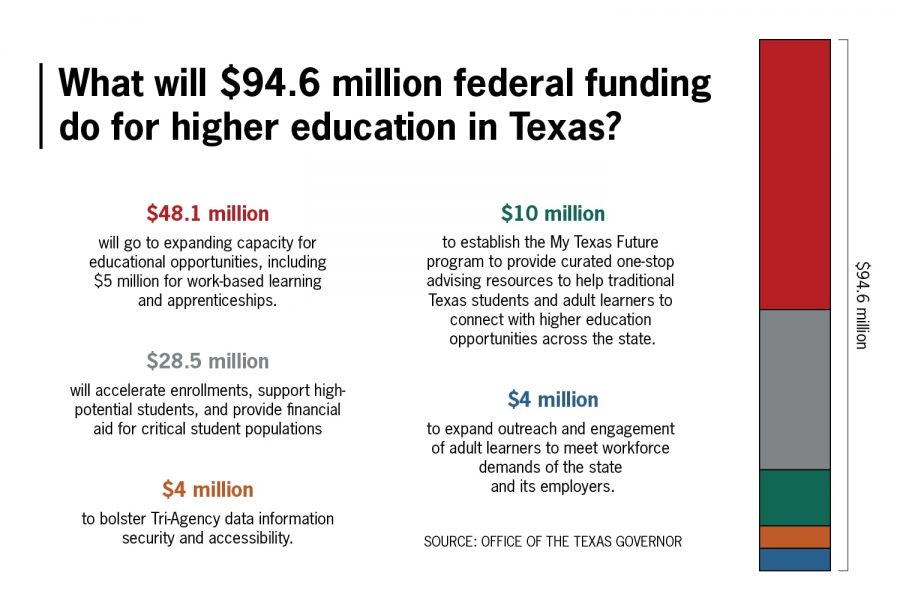$94.6M will go to supporting higher education, Gov. Greg Abbott says
July 15, 2021
Editor’s Note: This article first appeared as part of the July 6 flipbook.
Texas will send nearly $100 million in federal COVID-19 relief money to the Texas Higher Education Coordinating Board, with nearly $30 million going to student financial aid. However, University officials do not expect to see a large number of funds directed to UT.
“As we move forward from the pandemic, it is critical that we continue to support higher education to ensure more Texans are trained to face dynamic and unique challenges that will set them apart from others and make them more competitive in their field,” Gov. Greg Abbott said in a June 28 press release.
University spokesperson J.B. Bird said in an email that the University believes some funds will go to UT and other public universities, but it won’t be a large amount since Texas will divide the money across the state.
Fred Farias, chair of the Texas Higher Education Coordinating Board, said the money will go into five different areas. He said $28.5 million will go to supporting and providing financial aid for critical student populations. Public universities and community colleges will apply for grants through the board and will award funds once applications are reviewed, he said.
About $50 million will go into expanding the capacity for high-demand and high-value educational opportunities, such as short term credentials to meet workforce needs, including $5 million for work-based learning and apprenticeships, he said.
“Expanding capacity for high-demand, high-value education is important that we want to definitely look at as a coordinating board, because the COVID-19 pandemic accelerated changes in Texas higher education and workforce needs,” Farias said.
Farias said $10 million will establish the My Texas Future program that will provide a college career advising portal for all future college students in Texas who are deciding where to go or what to study. He said the program will feature virtual and live advisers and tools for students and families to explore different career paths.
$4 million will also go into a new program called GradTX, which aims to reengage more than 4 million adult Texans who have attended some college but did not receive a degree, Farias said.
“We want to support them in terms of completing credentials of value so that they can contribute to the state’s economy and its recovery,” Farias said.
Alumna Kiara Vaughters said she needed financial support during the pandemic to pay for her 2020 summer classes, which allowed her to graduate early.
“It helped me not have to worry about that burden about making sure I was able to get to school (and) it made sure I was able to pay for my classes,” Vaughters said.
Farias said the board will take care to meet students and institutions’ critical needs caused by the pandemic.
“We want our students to be competent and be able to do very well and increase our overall stature in higher education,” Farias said.











